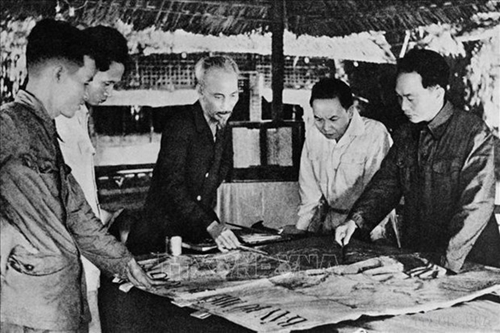March 27, 2024 | 20:38 (GMT+7)
Thai scholar credits Dien Bien Phu Victory to sound leadership of CPV
Thai scholar Songrit Pongern has attributed Vietnam's achievements, including the historic Dien Bien Phu victory, to the enduring qualities embodied in Ho Chi Minh's ideology and the sound leadership of the Communist Party of Vietnam.
During a recent conversation with a Vietnam News Agency reporter in Bangkok, Songrit said the Dien Bien Phu victory had inspired and encouraged the fight for independence in colonized nations worldwide, with the model of solidarity displayed by Vietnam, Laos and Cambodia which ultimately led to their triumph over superpowers like France and the U.S.
    |
 |
|
In late 1953, President Ho Chi Minh and Party leaders decide to open Dien Bien Phu campaign. |
He said the shared ideology and destiny provide a powerful force for solidarity among the three neighboring countries, helping them overcome the hardships of the prolonged war for national independence. The solidarity among the three countries has continued to today, evident in their shared stance on the international political stage and within the Association of Southeast Asian Nations (ASEAN), including initiatives like the shared border economic zone.
Visiting Dien Bien Phu in 1989 when Vietnam marked the 35th anniversary of the Dien Bien Phu victory and again in 1995 when Vietnam joined ASEAN, Songrit expressed admiration for Vietnam's sustained economic growth, noting that since economic reform began in 1986, Vietnam's gross domestic product (GDP) has climbed to the third place in ASEAN.
He saw Vietnam's skilled workforce as a major asset to attract foreign investment and believed that the country holds significant potential in both export production and meeting domestic demand.
Ultimately, he said Vietnam's goal of becoming a developed, high-income nation by 2050 is achievable, stressing that Vietnam's progress will be even more robust if it develops in tandem with all the countries in ASEAN, thus fostering a community of shared prosperity in the region.
Source: VNA